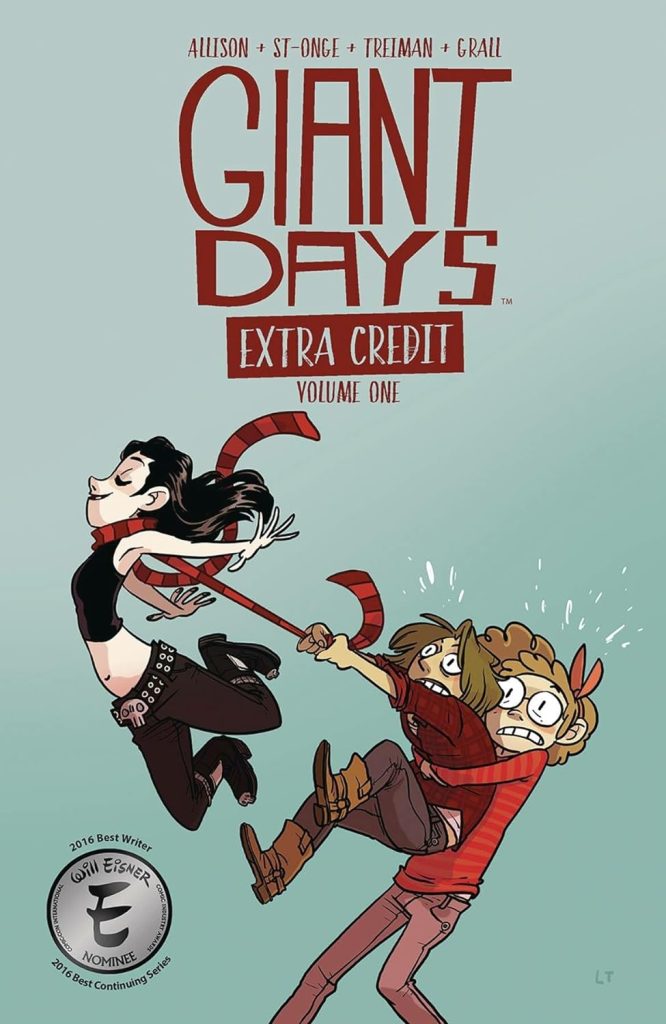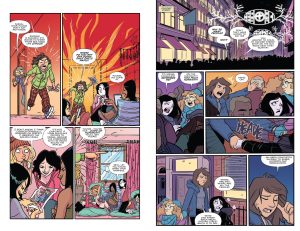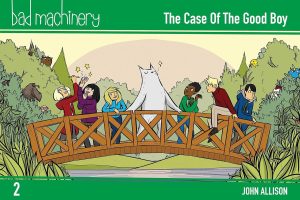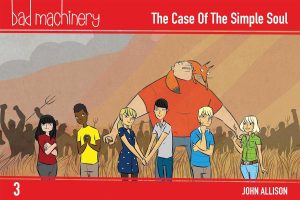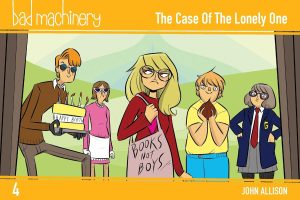Review by Frank Plowright
The Giant Days trades only reprinted the main series, meaning assorted extras and shorts weren’t previously given a home, now supplied by Extra Credit. It mops up two specials and short stories originally produced for the publisher’s Mixtape anthologies.
Original series artist Lissa Treiman returns to draw an alternate version of John Allison’s first Giant Days story, looking at what might have happened had events played out differently. It’s a world where Daisy Wooton and Esther de Grote didn’t befriend Susan Ptolemy or each other on their first day at university, and returns characters discarded from the first version of Giant Days (see Early Registration). Esther ends up hanging out with the rich girls, Susan ends up with Ed, and Daisy consoles herself with Enya. That, though, is only half of what’s a sort of redemption for Allison, whose use of the later redundant cast is far more effective here, supporting rather than stealing thunder. Slightly less effective is Esther’s surreal back-up, although there’s no problem with Caanan Grall’s cartooning.
Jenn St Onge’s cartooning is new to Giant Days, and she’s expressive, nails the cast and tells the story well. The one problem is drawing everyone with mouths wide open most of the time, which is a constant distraction. It concerns a Christmas trip down to London staying with Esther’s glamorous friend Shelley, and is interesting for revealing how integral the university environment is to Giant Days. The dialogue is as smart as ever, but satirising London and dropping celebrity names doesn’t provide the right backdrop. The result is a viable, if predictable comedy, but one that didn’t need the Giant Days cast.
Allison draws the two shorts himself. In the first there’s someone thieving from the dorm fridge, and in the second Cully needs a support band at short notice and Esther spontaneously volunteers. They serve the purpose of providing samplers of the series and cast, but neither ranks anywhere near the best of Giant Days.
Not including the extras in the original trades always seemed cheap on the publisher’s part, but it’s only the opening story that approaches the overall series quality, so perhaps that was for the best. Extra Credit is ideal for completists, but anyone else can skip this without feeling they’ve greatly missed out.
Despite being labelled as Volume One on the cover, there hasn’t been a second volume.
